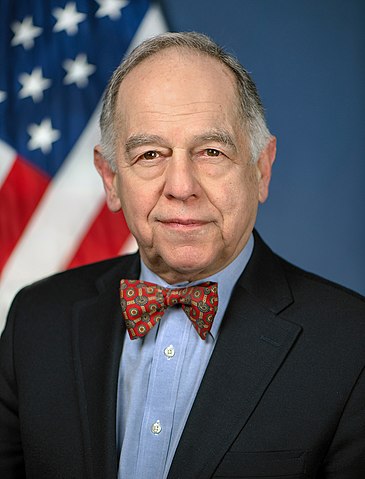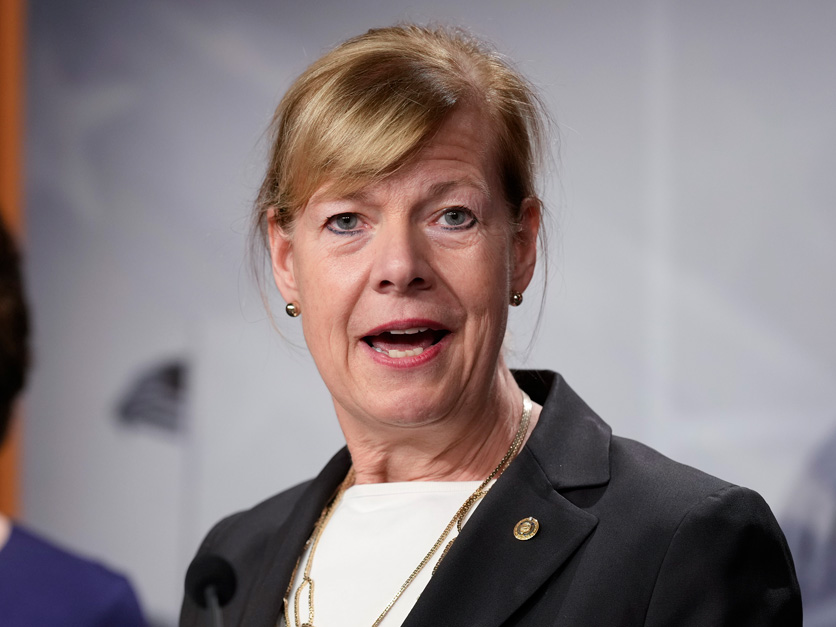Rail carriers struggling to provide adequate service could be required to allow competitors on their tracks under a proposed Surface Transportation Board rule aimed at curbing delays and increasing competition in rail networks.
The proposal, introduced unanimously by the 5-member panel earlier this fall, allows the agency to authorize “reciprocal switching” agreements if railroads fail to meet their estimated times of arrival, if transit times for shipments see “significant deteriorations” from a standard, or if railroads failed to “adequately” perform local deliveries and pick-ups of railcars within a planned service window.
These agreements — which allow shippers to be served by an alternate rail carrier on their typical provider’s tracks — would generally last for two years, though the board could prescribe them for up to four years in certain cases.
The concept is not novel. Switching was regularly used in rail networks prior to the 1980 passage of the Staggers Act, which significantly loosened regulations to revive several near-bankrupt railroads, STB Chairman Martin Oberman told Agri-Pulse in an interview.
“The railroads handled each other’s traffic all the time,” Oberman said. “They didn’t charge each other for it usually, because it was mutual. It was reciprocal — that’s where the word came from.”
 STB Chair Martin Oberman
STB Chair Martin ObermanThe Staggers Act, which opened the door for railroads to privately negotiate contracts with shippers, includes language allowing the STB to require rail carriers to enter into reciprocal switching agreements “where it finds such agreements to be practicable and in the public interest, or where such agreements are necessary to provide competitive rail service.”
The Interstate Commerce Commission, a predecessor to the STB, adopted an initial set of reciprocal switching regulations in 1985, but decided in its first major case on the subject that they could only be applied in situations where shippers could demonstrate their railroad “engaged in or is likely to engage in conduct that is contrary to the rail transportation policy or is otherwise anticompetitive.”
The high standard set by the case — Midtec Paper Corp. v. Chicago and North Western Transportation Co. — has made it difficult for shippers to secure reciprocal switching agreements and more hesitant to try, companies and shipper groups like the National Industrial Transportation League, Cargill, and the Alliance for Rail Competition, have told the board. The board has received only four reciprocal switching requests since the enactment of these requirements, which are still in place today, and has denied all of them, according to the NITL.
“Shippers are, frankly, not going to try to bring those cases. They don’t think they can win them,” said lawyer Karyn Booth, speaking on behalf the NITL, the American Chemistry Council, the Fertilizer Institute, the Corn Refiners Association, and the Chlorine Institute at a board hearing on reciprocal switching last year.
The board began looking at updating the rules in 2012 following a petition from the NITL that claimed shippers faced “insuperable barriers” to being granted switching under the old set. The proposal the panel settled on in 2016, according to former Chairman Daniel Elliott, was broader in scope than the current one, looking at competition in addition to service.
But there was disagreement within the panel, which had three members at the time, over that proposal. Commissioner Ann Begeman filed a partial dissent alongside the draft rule expressing her concern that it could result in “greater harm than good” or become “nothing more than an empty promise to prospective applicants.”
Work on that rule halted in 2017 amid a shift in administrations. Begeman, appointed head of the board by then-President Donald Trump, never took steps to finalize it during her tenure, Elliott said.
“It sat there and never moved during those four years,” Elliott told Agri-Pulse.
The board’s interest in the issue resumed as Oberman, a former alderman for the city of Chicago, was appointed as the board’s chair. The new rule is based around reciprocal switching as a means of improving service, which Oberman said should prevent the “endless litigation” he believes could have stemmed from its “less well defined” 2016 predecessor.
“The current proposal has these specific metrics — you’re either above the line or below the line,” Oberman said. “There are defenses that can be raised, but those are there as escape paths if there really is a problem on the railroad. The whole thrust of the new proposed rule is to be objective in the criteria to reduce the amount of litigation and the delay in deciding the case one way or the other."
Lawyers for the Association of American Railroads, a group that represents the major Class I railroads, warned the STB in a Nov. 7 comment against letting the rule’s proposed service reliability framework become a “straitjacket” that prevents the board from considering all of the factors behind service challenges. Rail service metrics should be used as a “starting point” for switching inquiries, rather than the “ending point,” they said.
“Service issues have many overlapping causes,” the AAR lawyers wrote. “Not every failure to meet a particular shipper’s desires equals inadequate service, especially in a network where carriers have obligations to all customers. And switching arrangements are economically and operationally complex and varied.”
AAR supports switching as a solution for poor service, albeit with a list of caveats: if shippers’ current carrier “consistently” fails to provide adequate service and cannot provide a solution, if the shipper has a “compelling reason,” and only if the alternative setup is “safe” and “practicable.”
Any reciprocal switching proposal, the AAR lawyers argued, must prompt the board to consider additional facts and data presented in railroads’ defense, and also require shippers to show how they have been “materially harmed” by inadequate service. Such a rule should also not be used to “coerce” railroads into changing how they operate or to “punish” them for past service failings, they said.
Oberman told Agri-Pulse that the rule does give railroads the opportunity to establish an “affirmative defense,” or demonstrate that the service levels stem from unexpected surges in traffic, highly unusual shipment patterns, “extraordinary” events beyond their control, or delays stemming from the dispatching choices of a third party. If railroads were able to successfully make these cases, the board would not approve a reciprocal switching agreement.
Max Fisher, the chief economist and treasurer at the National Grain and Feed Association, told Agri-Pulse the organization sees the new rule as a “positive” development compared to current reciprocal switching regulations. But he said the service-focused rule leaves out some of the “competition-enhancing concepts” the board proposed in 2016, like automatically granting reciprocal switching to carriers within a set radius from a terminal area.
It’s easy to be “in the know” about what’s happening in Washington, D.C. Sign up for a FREE month of Agri-Pulse news! Simply click here.
“It’s not the long-term help for rail competition that we were hoping for,” Fisher said of the new rule.
Similarly, Jenny Lester Moffitt, undersecretary for marketing and regulatory programs at the Agriculture Department, urged the STB to “take immediate action” to craft reciprocal switching rules more specifically tailored to enhancing competition amid increased consolidation in the industry.
 Sen. Tammy Baldwin, D-Wis. (AP Photo/J. Scott Applewhite)
Sen. Tammy Baldwin, D-Wis. (AP Photo/J. Scott Applewhite)“The proposed reciprocal switching rule represents a good step toward remedying service, but the board should take clear action to provide shippers with effective reciprocal switching options to address inadequate competition,” she wrote in a comment to the board.
Two members of the Senate Commerce subcommittee covering transportation-related issues — Sens. Tammy Baldwin, D-Wis., and Shelley Moore Capito, R-W.V. — called the rule an “appropriate next step” to improving the rail service challenges that have plagued networks in recent years. Class I railroads fell behind in fulfilling shipping orders last spring as they struggled to fill their workforce, which had been trimmed in 2020 due to drops in container traffic.
Baldwin, in an interview with Agri-Pulse, called the rule a “big leap forward” toward improving service.
“This is long coming and long overdue, in my mind,” Baldwin said of the rule.
The comment period for the proposed rule ended on Nov. 7. The agency is accepting reply comments until Dec. 20. Oberman said he hopes the board is “in a position to take final action” sometime early next year.
“I think the national rail network needs as much competition as we can find ways to instill in the system,” Oberman said. “There’s more to do. This is an important step.”
For more news, go to Agri-Pulse.com.


